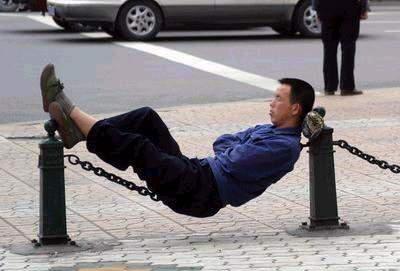![]()

A few years ago, I shared a flat with a beautiful French girl called Celine. Her natural Gallic grace was only outweighed by her almost total inability to get up and go to bed on time. At weekends, she would go out, get to bed at 4 or 5AM, and wake at midday. Repeating this Friday and Saturday nights, she would be in what neurologists call a “persistent vegetative state” – low functioning, dopey, in the office but not in the office. She had, in effect, given herself jet lag over the weekend with her self-disrupted sleep patterns, and paid the price over Monday and Tuesday.
This got me thinking about the science of sleep. It turns out that there is an area of study called “Sleep Hygiene”. The idea is that we can adopt a series of habits, tips and tricks that enable us to sleep less – and better. This helps us to be at our most productive and creative during the day – in essence, sleeping Ninja-style!
I adopted the practices of Sleep Hygiene, and recommend the following Top Five Productivity Ninja Tips:
1. Fix a bedtime and an awakening time. Of course, this is not always possible, but if your time of going to bed varies by +/- two hours, and your time of waking varies by the same, you are giving yourself miniature, irregular, unnecessary bouts of jet lag. I aim to be in bed by 11PM and up by 6AM. Social demands may pull this out of shape, of course, but I find that when I stick to this timing my productivity and creativity the following day are tip-top.
2. Exercise regularly, but not right before bed. The demands of our busy working lives often make us relegate daily exercise to the bottom of the list. In my experience, this is a mistake. I try to cycle for 30 minutes first thing in the morning. I find that, if I skip this for whatever reason, my sleep suffers. Even twenty minutes a day can make the difference.
3. Don’t take your worries to bed. Some people like to mull things over – solo or with a partner – in the evening. I find that this generates “repetitive loop” type thinking that blocks sleep. Much as I rarely work after 6PM, I rarely give thought to “worry” matters after that time. Thus my head hits the pillow empty, rather than full of fret.
4. Reserve the bed for sleep and sex. Some people like to eat, watch TV and do a range of strange things in bed. I believe the body like clearer messages. Sleep and sex. Reading, perhaps, before sleep. By the way, television in the bedroom is an absolutely terrible idea.
5. Establish a pre-sleep ritual. Again, this is not always possible, but twenty minutes reading before bed, a hot drink, or whatever, signals to the body that sleep is imminent.
We spend a third of our lives asleep. We can use that time or abuse it. Sleep Hygiene is a neat way of minimising the stress and difficulty associated with the nocturnal hours. If we use those hours well, we can ensure that we maximise the impact of our daylight hours.

Some great Ninja tips Matthew. Banning TV in the bedroom is a must in my opinion for relaxation and quality sleep. Most people are likely to send the TV to sleep rather than turn it off, leaving a disturbing ‘ white noise’ effect in the bedroom. Ask anyone who regularly starts early shift and they will tell you their body clock is set to wake before the alarm. Thanks for this post. I would add that many people stay up later than they want to just to watch a late programme on TV. Losing sleep over a programme that can be recorded and watched at your own time minus the adverts is unnecessary and allows TV schedules to set your bedtime.